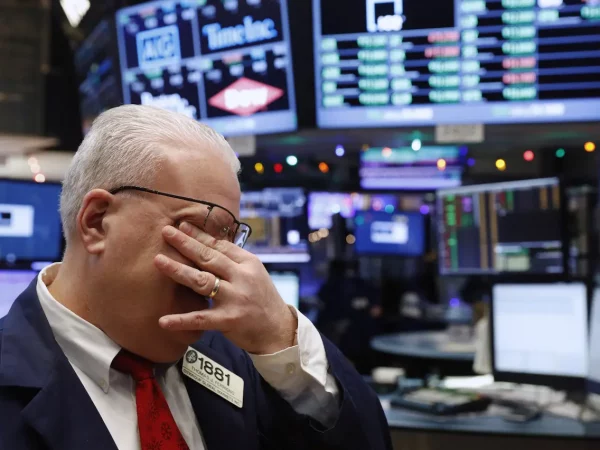
Stocks and other risk assets have been pressured by inflation and the Federal Reserve’s attempt to tamp down price increases through rate hikes, which have led to concerns about a potential recession.
Bitcoin’s recent selloff has taken the cryptocurrency closer to its May levels. This has raised concerns about how low bitcoin can go, with some analysts anticipating $20,000 levels.
Bitcoin has lost roughly 7% this week, and on Wednesday was trading at around $30,200. According to some analysts, further weakness in the cryptocurrency might lead to a drop to $20,000.
Bitcoin has been extremely volatile recently, surging and falling dramatically in response to a variety of news items. But it isn’t the only cryptocurrency to have experienced recent volatility.
The war in Ukraine, inflationary fears, and higher interest rates have all contributed to a drop in global stock markets, making it more expensive for firms to borrow money. This, paired with concerns about future regulation, has spilled over into the bitcoin market.
China’s continuing crackdown on cryptocurrency is also a factor. There has also been talk that crypto operations in Russia may come to a halt.
Furthermore, major cryptocurrencies have experienced unexpected and significant sell-offs. As consumer now lacks confidence, this has caused panic and subsequent sell-offs.
Cryptoassets are a highly volatile unregulated investment product. Your capital is at risk.
Will the price of Bitcoin rise if the stock market falls

Certainly not. Bitcoin supporters perceive it as a portfolio diversifier, yet it performed no better than stocks at the onset of the coronavirus outbreak. This is due to panic selling by investors.
Bitcoin fell by more than 40% in the first two weeks of March 2020.
“All equity markets took an aggressive leg down due of concerns over Covid-19 at that time,” says Rosie Bullard, partner and portfolio manager at James Hambro & Partners. “In an equity market reversal, it wasn’t exactly a store of value.”
However, how crypto assets perform during stock market crashes will be determined by the reason for the crash.
Most bitcoin investors believe it would safeguard them against an inflationary shock like the one that occurred in 1974.
Why the Stock market and Bitcoin keeps crashing
The S&P 500, Dow Jones Industrial Average, and Nasdaq are all significantly lower than they were at the beginning of the year, down 16%, 12%, and 26% respectively, as of market open on Wednesday. Last week, the Dow and Nasdaq experienced their biggest single-day drops since 2020. This week, the S&P 500 reached its lowest point in a year. Many companies, both large and small, in the tech sector are facing difficulties.
There is no single explanation for why markets behave the way they do, why equities rise and fall, or why investor mood shifts from day to day. With that in mind, perhaps the best explanation for what’s happening right now is that there are numerous reasons for investors to be concerned, and so they are.
Inflation is an issue in the United States and around the world, with the United States’ inflation rate nearing 40-year highs. The Consumer Price Index, which measures how much people pay for goods and services, rose 8.3 percent year over year in April and 0.3 percent month over month. To battle inflation and bring prices back under control, the Federal Reserve has begun to raise interest rates and will soon begin to shrink its balance sheet. These steps are required, but they make Wall Street uneasy.
“The good news is that it always works. “The bad news is that it always works because it causes a recession,” said Colas.
Will Bitcoin ever go back up
Coming off its all-time high in November, a $100,000 Bitcoin price was easy to forecast late last year. With Bitcoin’s steep decline since then, the prediction game has become much more difficult.
The most ardent crypto doubters anticipate that Bitcoin will crash to $10,000 by 2022, but a middle ground could be that Bitcoin can still reach $100,000, as many experts projected late last year — albeit on a slower schedule.
Related Crypto News
Cryptoassets are a highly volatile unregulated investment product.